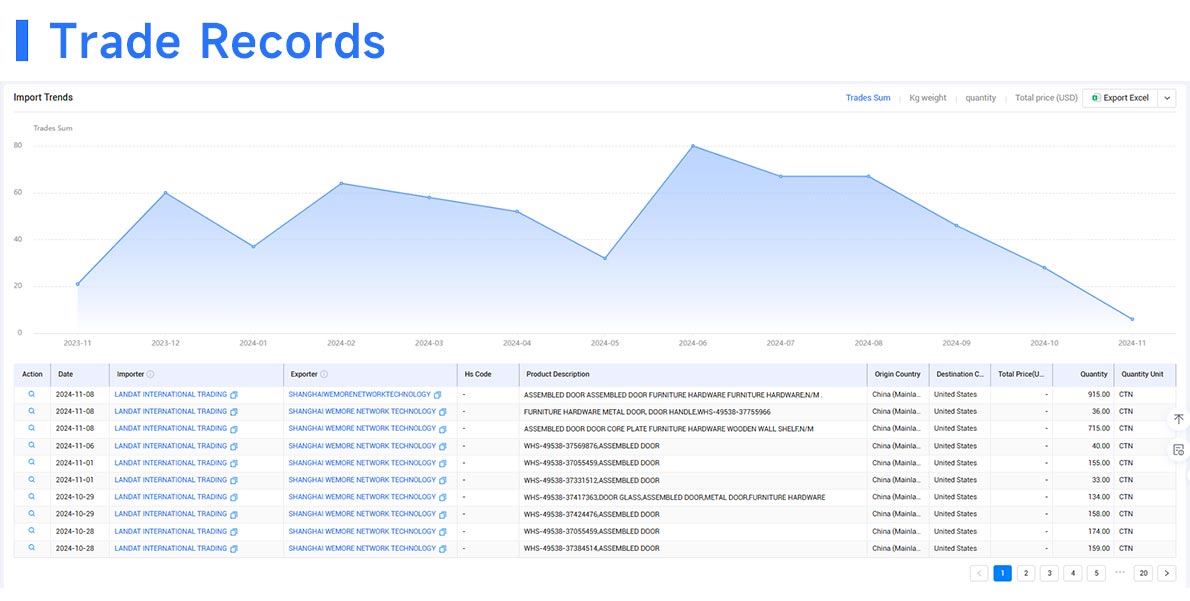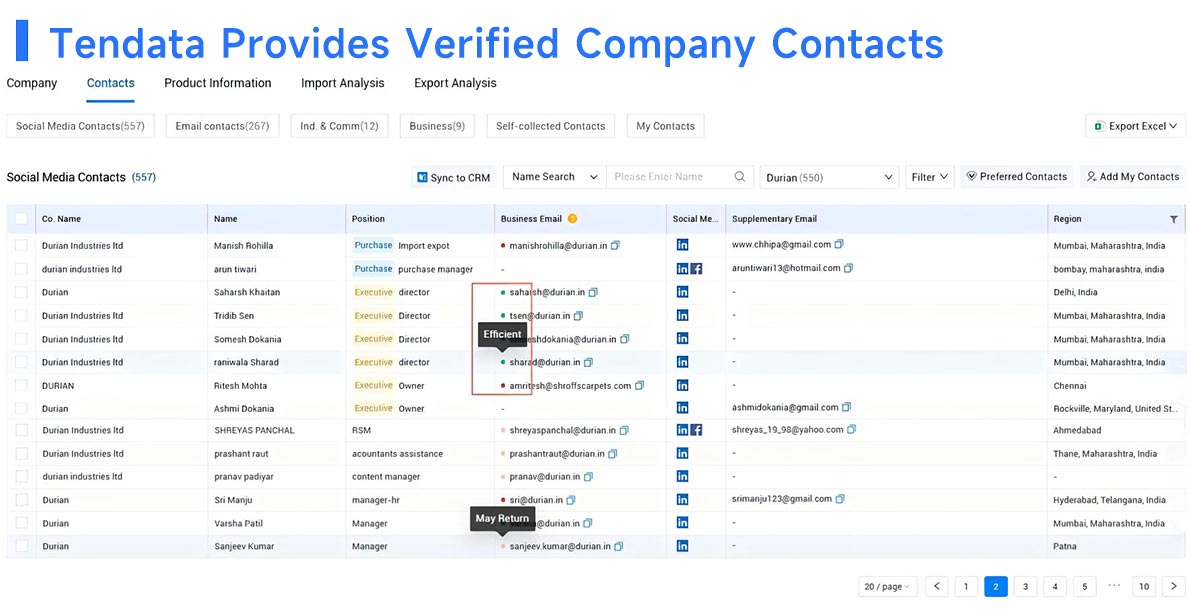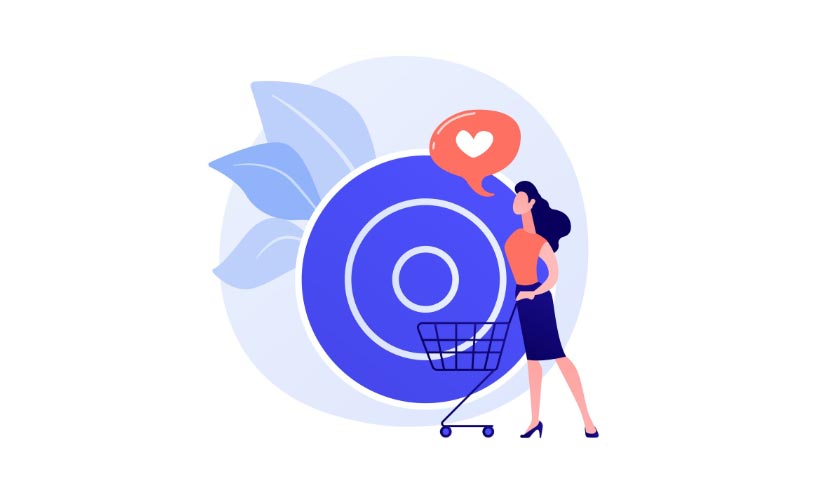 Trade Data Provider
Trade Data Provider
 2025-11-07
2025-11-07
Let's look at how to acquire sales leads online from two perspectives: passive acquisition and active prospecting.

1. Passive Lead Generation
(1) B2B Platforms
Using search engines like Google is the most common method for importers and exporters, but B2B platforms remain a strong source of leads — if used correctly. Today, most B2B platforms require paid investment to gain visibility, and Alibaba is no exception. You either pay for Gold Supplier, Top Listing, or P4P (Pay for Performance) exposure.
Our company's current approach uses a basic account + P4P, managed by a dedicated platform operator. Their daily tasks include optimizing products and improving P4P performance. This allows sales staff to focus solely on following up with inquiries and closing deals.
Also, don't overlook RFQs (Request for Quotation). On Alibaba, if a buyer's inquiry receives no replies, it automatically converts to an RFQ — which means there are still plenty of hidden opportunities there.
Suggestions:
1、Hire a dedicated operations specialist to manage the platform and spend reasonably on P4P for steady traffic.
2、If you don't have an experienced operator, consider purchasing a Top Listing position to secure visibility — simple but effective.
(2) Official Website
B2B platforms bring built-in traffic, but your own website relies on self-generated traffic through two main methods:
·SEO (Search Engine Optimization): Optimize keywords, publish high-quality content regularly, and earn backlinks from trusted sites.
·SEM (Search Engine Marketing): Run paid keyword ads on Google — similar in principle to Alibaba's P4P system.
SEO and SEM require long-term, technical effort. However, “publishing valuable content consistently” is something any business can and should do.
Google rewards high-quality content. By posting useful articles consistently, you can:
1、Increase your chances of being indexed and appearing in relevant product searches.
2、Build your reputation as an industry expert, gaining initial trust from potential buyers.
(3) Social Media
Social media success relies on two key points:
·Create valuable content
·Engage and interact
Once you've built a professional image through quality content, connecting with potential customers becomes easier — because they see you as someone who adds value.
On LinkedIn, search for professionals related to your product or industry (e.g. procurement, sales, or business development) and send connection requests. Then, engage actively by commenting on their posts — not just liking, but leaving thoughtful insights or updates that show your expertise.
Over time, as potential clients repeatedly see your valuable contributions, they'll begin to trust you. And when they have a purchasing need — you'll be the first person they think of.
Tips:
1、For technical or industrial products, LinkedIn works best.
2、For fast-moving or fashion products, Facebook and Instagram are more suitable.
3、Keep building your industry expert persona through consistent posts and meaningful engagement.
2. Active Lead Generation
(1) Google Search
Learn how to use advanced Google search operators like +, -, and site:.
This helps filter out irrelevant results and focus on real importers, distributors, or brand partners.
(2) LinkedIn / Facebook / Instagram Search
The logic is similar to Google.
On LinkedIn, you can search by product keywords or company names.
If you're a Sales Navigator subscriber, you can use advanced filters like country, job title, and industry to find more precise contacts.
Even a free LinkedIn account can be very effective if used strategically.
On Facebook or Instagram, search by product keywords to find brand pages. These often list contact details like email addresses or phone numbers — or you can reach out directly via private messages.
(3) Trade Data
Use trade databases to search by: Product name, HS code, Supplier company name, Buyer company name
Start by searching your product or HS code and sort by purchase quantity. You'll immediately see which foreign buyers place the largest orders. Record their company names, then research them further on Google.

You can also input competitor company names to see their clients and trade volumes — helping you identify potential customers to target.
Next Step: Finding Contacts
Once you've identified target companies through any of the three channels above:
1、Search the company's official website on Tendata Trade Databases.

2、Look up the company's LinkedIn page, browse its employee list, and find staff involved in purchasing or product management.
3、Use tools to extract LinkedIn contact emails or send connection requests and follow up with direct messages.
4、On Facebook or Instagram, message them directly or interact with their posts to initiate contact.
In short:
Online customer acquisition for import-export businesses combines data-driven research with precise engagement. Use tools to filter high-value leads, approach them with tailored strategies, and maintain visibility through consistent, expert-level content.
Be one step faster at finding customers and one level deeper at serving them — and the orders will keep coming.
Category
Leave Message for Demo Request or Questions


 T-info
T-info T-discovery
T-discovery

 My
Tendata
My
Tendata Market Analysis
Market Analysis Customer
Development
Customer
Development Competitor
Monitoring
Competitor
Monitoring Customer Relationship
Customer Relationship



















